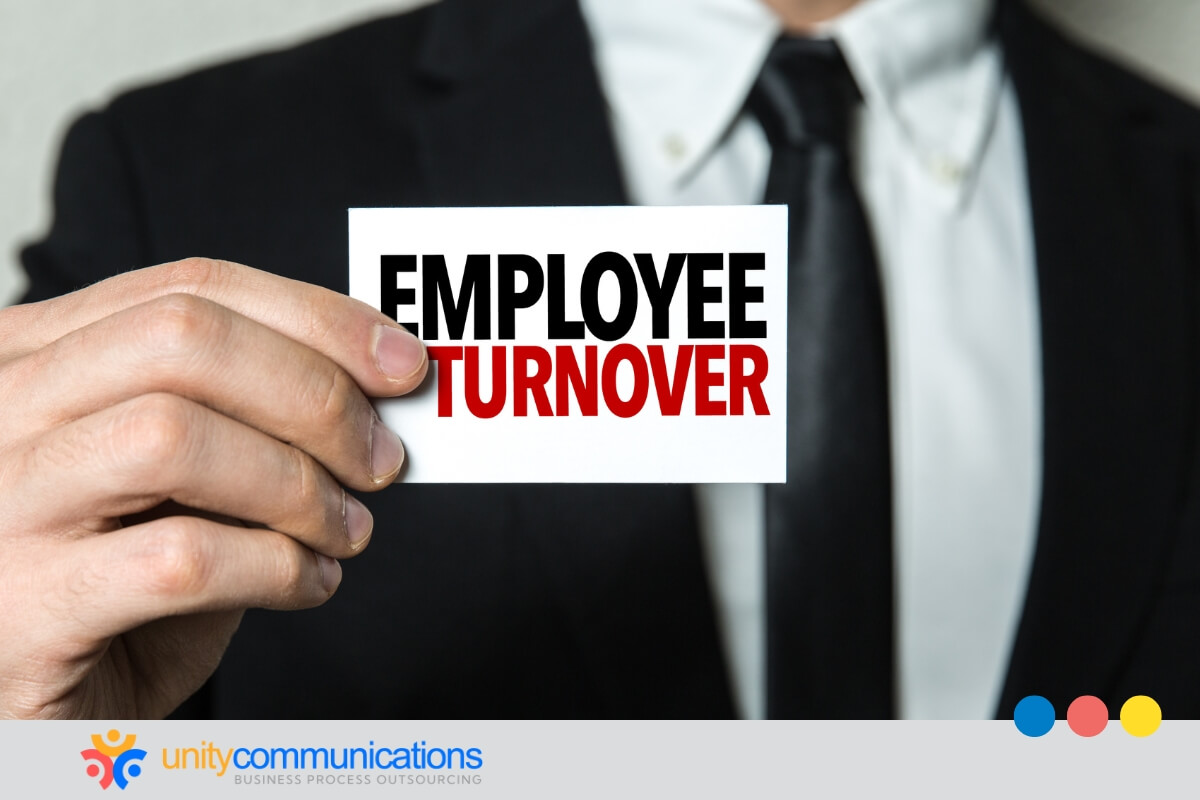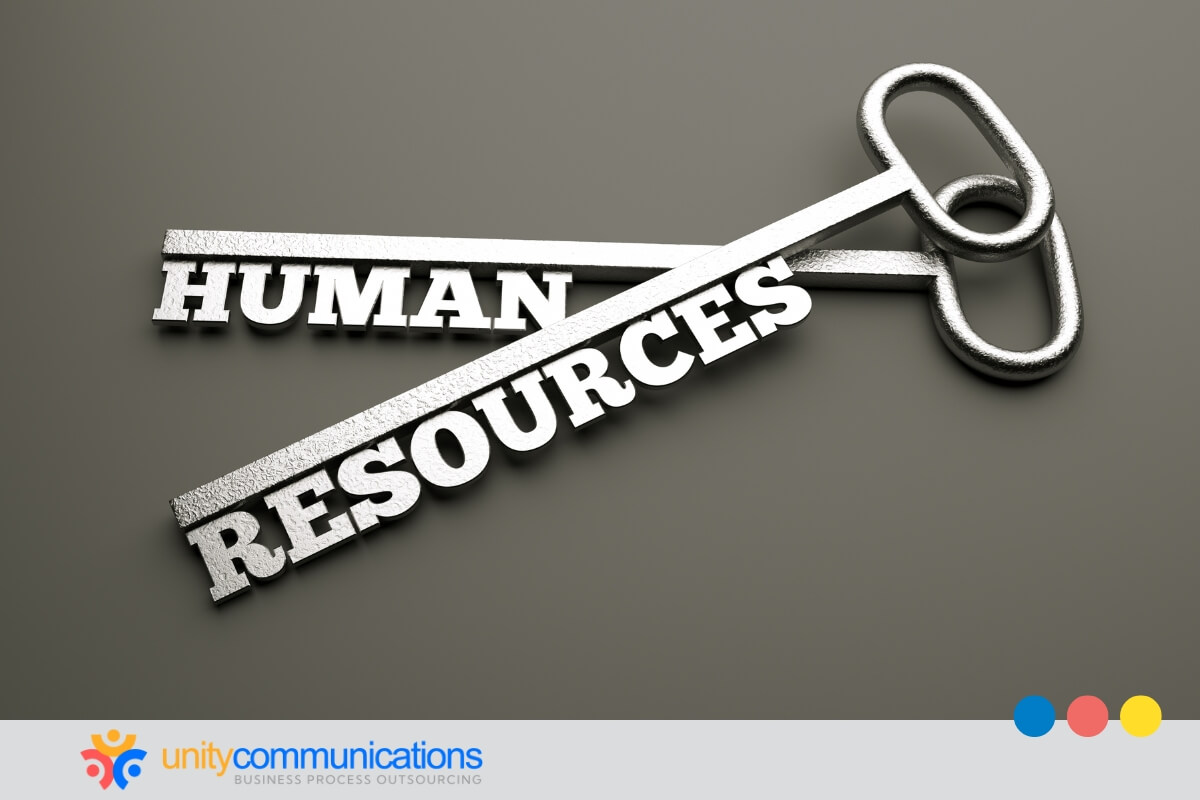IN THIS ARTICLE
Table of Contents
Complexities in talent acquisition, regulatory adherence, and benefits administration await businesses expanding into the Philippines. Employer of record (EOR) service providers are their strategic partners in navigating the country’s human resource (HR) environment.
EOR Philippines solutions provide comprehensive support in workforce management and legal compliance, allowing foreign companies to focus on core operations and growth initiatives. Keep reading to learn how Philippine EOR firms address HR challenges for seamless expansion!
Deep dive into HR challenges in the Philippines

Risks are typical when entering an unfamiliar HR landscape. Below are HR challenges foreign employers can expect when expanding their workforce and operations into the Philippines:
Complex regulatory environment
The Philippines has strict labor laws and regulations. Key areas prone to compliance issues include wage standards, mandatory benefits, and employee termination.
Adherence to these policies is crucial to avoid legal penalties and maintain smooth business operations. The Labor Code of the Philippines, the 13th Month Pay Law, the Expanded Maternity Leave Act, and the Universal Health Care Act are examples of legislation affecting employment in the Philippines.
Competitive talent market
In the Philippines, talent acquisition presents unique challenges for foreign businesses. The high demand for skilled professionals means local companies often have an advantage in attracting talent since they’re familiar with the work environment.
Foreign businesses might struggle to understand local labor practices and expectations, making it harder to appeal to top candidates. Additionally, offering competitive salaries and benefits that match or exceed local standards is complicated due to differing economic conditions and cost structures.
Cultural and communication barriers
Cultural nuances and communication styles can significantly affect workplace harmony and productivity. Differences in cultural norms influence expectations around hierarchy, teamwork, and decision-making, potentially leading to misunderstandings or conflicts.
Communication styles shape how people provide and receive feedback. They also affect team dynamics and overall effectiveness. Here are examples of the nuanced communication and cultural dynamics in the Philippines:
- Employees often show deference to higher-ranking individuals, influencing decision-making and interactions.
- Emphasis is placed on group harmony and collective achievement over individual success.
- Feedback is typically delivered politely and indirectly to avoid confrontation.
- Professional communication is formal, with titles and honorifics used in business settings.
- Filipinos prefer resolving conflicts quietly to maintain workplace harmony.
Addressing these barriers through cultural sensitivity training and clear communication strategies fosters a more inclusive and productive work environment.
High employee turnover
Employers must reassess job offerings, as voluntary turnover climbed to 15.9% in 2023, up from 14.2% the previous year, according to WTW. This increase was driven by better pay, career growth, relocation, and flexible work demands.
High turnover disrupts project continuity, delays timelines, and impacts work quality, leading to inefficiencies and diminished client satisfaction. Additionally, the cost of frequent hiring and training can strain resources, as foreign companies must repeatedly invest in recruitment and onboarding to integrate new hires and enhance productivity.
Significant employee benefits costs
A comprehensive benefits package can attract and retain top talent in a competitive job market. However, the cost of benefits—such as health insurance, retirement contributions, and others—can be huge and affect the budget and financial planning.
Here are examples of mandatory employee benefits that might cost companies:
- PhilHealth coverage and private health insurance plans for employees and their families
- Mandatory contributions to the Social Security System (SSS) for retirement benefits
- Paid time off, such as vacation leave, sick leave, and holiday pay
- 13th-month pay
As employers comply with local labor laws, they must adjust their benefits offerings and increase administrative overhead. This strains their resources, requiring dedicated personnel or third-party services to manage benefits effectively.
How Philippine EOR addresses HR challenges

Philippine EOR services offer comprehensive support for businesses operating and expanding in the country. Partnering with an employer of record provides significant advantages, such as streamlined payroll, legal compliance, and efficient administration.
The benefits of EOR services help address the many HR challenges that await businesses in the Philippines. Here’s how:
Legal compliance
EOR services help mitigate legal risks for businesses by managing compliance with different aspects of employment. As a result, companies can focus on their core operations while third-party providers handle the following tasks to meet legal requirements:
- Draft, manage, and ensure legally compliant and binding employment contracts
- Guarantee adherence to local laws regarding minimum wage and working hours
- Manage social security, health insurance, paid leave, and other benefits
- Handle tax deductions, withholdings, and contributions accurately
- Apply proper employee dismissal and severance procedures
- Implement and monitor health and safety standards
Business process outsourcing (BPO) firms in the country can also provide EOR services. Organizations that partner with such vendors can quickly comply with local labor laws and BPO regulations.
Recruitment and talent acquisition
EOR services support businesses in navigating the local labor market and scouting and acquiring talent. They provide expertise in understanding local hiring practices and cultural nuances, which help firms effectively identify and attract top talent.
The following illustrates how Philippine EOR firms address HR challenges related to recruitment:
- Creating and distributing job advertisements and promoting them on relevant platforms for a broader reach
- Overseeing initial applicant screening and filtering out unqualified candidates
- Coordinating and conducting interviews
- Benchmarking salaries against industry standards
- Developing appealing benefits packages for candidates
Onboarding and employee integration
Onboarding with employer of record services also seamlessly integrates new hires into the company. EOR firms help businesses in achieving a successful onboarding experience through the following strategies:
- Implementing comprehensive onboarding plans that cover essential company policies and role-specific training
- Handling all necessary paperwork, such as employment contracts and tax forms, to guarantee compliance and avoid delays
- Assisting new hires with the enrollment process for health insurance, social security, and other benefits
- Organizing sessions to help new employees understand and adapt to the Philippine work environment, fostering better integration and reducing cultural friction
- Providing a point of contact for new hires to address any questions or concerns during their initial period
Payroll management and taxation
EOR services simplify payroll by managing its aspects, including tax deductions and remittances, in accordance with Philippine tax laws. They ensure employees receive their pay accurately and promptly and calculate complex taxes, social security contributions, and other mandatory deductions.
Offloading these tasks to EOR firms reduces the risk of errors and compliance issues and promotes timely and precise financial reporting. Companies can also focus on operations while maintaining a streamlined and efficient payroll system.
EOR firms manage payroll by applying these strategies:
- Utilizing software to automate payroll processing and reduce errors
- Conducting regular audits to adhere to tax laws and regulations
- Tailoring payroll management to fit the specific needs of the business and employees
- Providing platforms for employees to access their payroll information and manage their data
- Keeping payroll staff informed about changes in tax laws and regulations for ongoing compliance
Employee benefits administration
Another challenge in the Philippine HR landscape is understanding the legal aspects of employee benefits. EOR services can administer statutory benefits such as social security, health insurance, and paid leave.
EOR services enhance job satisfaction and help retain top talent through attractive and compliant benefits. They can reduce business administrative burdens and help companies create a positive work environment.
Here’s how Philippine EOR can help address HR challenges in employee benefits administration:
- Health insurance. EOR provides workers comprehensive coverage, including medical, dental, and vision care, to maintain their well-being.
- Performance bonuses. EOR helps provide incentives tied to individual or company performance to motivate and reward high achievers.
- Paid leave. EOR offers employees generous vacation, sick leave, and personal days to promote work-life balance and satisfaction.
- Wellness programs. EOR gives workers fitness memberships, mental health support, and wellness activities to enhance their health and morale.
Performance management and evaluation
EOR is vital in establishing clear performance metrics and evaluation processes that align with business goals. They work with businesses to define key performance indicators (KPIs) and set measurable objectives for employees.
They conduct regular performance reviews and provide feedback mechanisms to determine whether employee performance supports business objectives.
EOR facilitates performance audits, feedback, and development plans through the following strategies:
- Standardizing performance review templates and timelines for consistency and clarity in evaluations
- Scheduling periodic feedback meetings to provide employees with ongoing performance insights and address any issues promptly
- Assisting in establishing clear, measurable goals that align employee objectives with overall business targets
- Creating personalized development plans that include training, skill-building opportunities, and career progression paths
- Utilizing digital platforms to monitor and track employee performance data, making reviews more data-driven and objective
Employee relations and conflict resolution
Maintaining positive employee relations and resolving workplace conflicts are essential for a harmonious work environment. EOR services use the strategies below to boost employee relations and enhance employee satisfaction and organizational stability:
- Establishing open lines of communication to address issues early and prevent escalation
- Offering training programs to equip employees and managers with skills to resolve conflicts effectively
- Conducting periodic reviews and surveys to gauge employee satisfaction and identify potential issues
- Providing professional mediation to facilitate fair dispute resolutions
- Giving expert advice on employment laws and regulations so that conflict resolution processes are compliant and legally sound
Training and development programs
Employer of record service providers identify training needs and organize professional development opportunities. They conduct assessments to determine skill gaps and align training programs with individual and organizational goals.
By managing training and development initiatives, EOR firms ensure employees receive relevant and compelling learning experiences that enhance their performance and career growth.
EOR partnerships enhance skill-building and career growth for employees through these strategies:
- Customizing training programs based on individual skill assessments and career development needs
- Providing employees access to online courses, workshops, and seminars relevant to their field
- Assisting employees in mapping clear career paths with targeted skill-building opportunities and promotions
- Facilitating mentorship and coaching for personalized guidance and support
- Creating development plans linked to performance reviews to give employees targeted training
Implementation of regulatory changes
Having EOR experts guide businesses through legislative updates and compliance adjustments offers a significant advantage and minimizes legal risks.
EOR services stay current with changes in employment laws and provide expert advice to help companies adapt their policies effectively. They help maintain smooth operations amid evolving legal landscapes.
Here’s how Philippine EOR firms address HR challenges related to regulatory changes:
- Monitoring updates from government agencies and legal publications
- Engaging with legal and HR professionals through industry associations and forums
- Conducting regular audits to assess compliance with current regulations and identify necessary policy adjustments
- Providing ongoing training for HR staff on regulatory changes and equipping them with skills and tools to handle new compliance requirements
- Continuously reviewing and revising internal policies and procedures to align with the latest legal standards
The bottom line

EOR services help foreign companies overcome HR challenges in the Philippines by streamlining payroll, complying with local labor laws, and managing employee benefits. They offer valuable support in recruitment, performance management, and regulatory adherence, allowing businesses to focus on their operations.
Businesses should consider how Philippine EOR firm can address their HR challenges to enhance efficiency, ensure legal adherence, and foster a positive work environment.
Find out how EOR services can help you grow operations in the Philippines. Let’s connect today!





